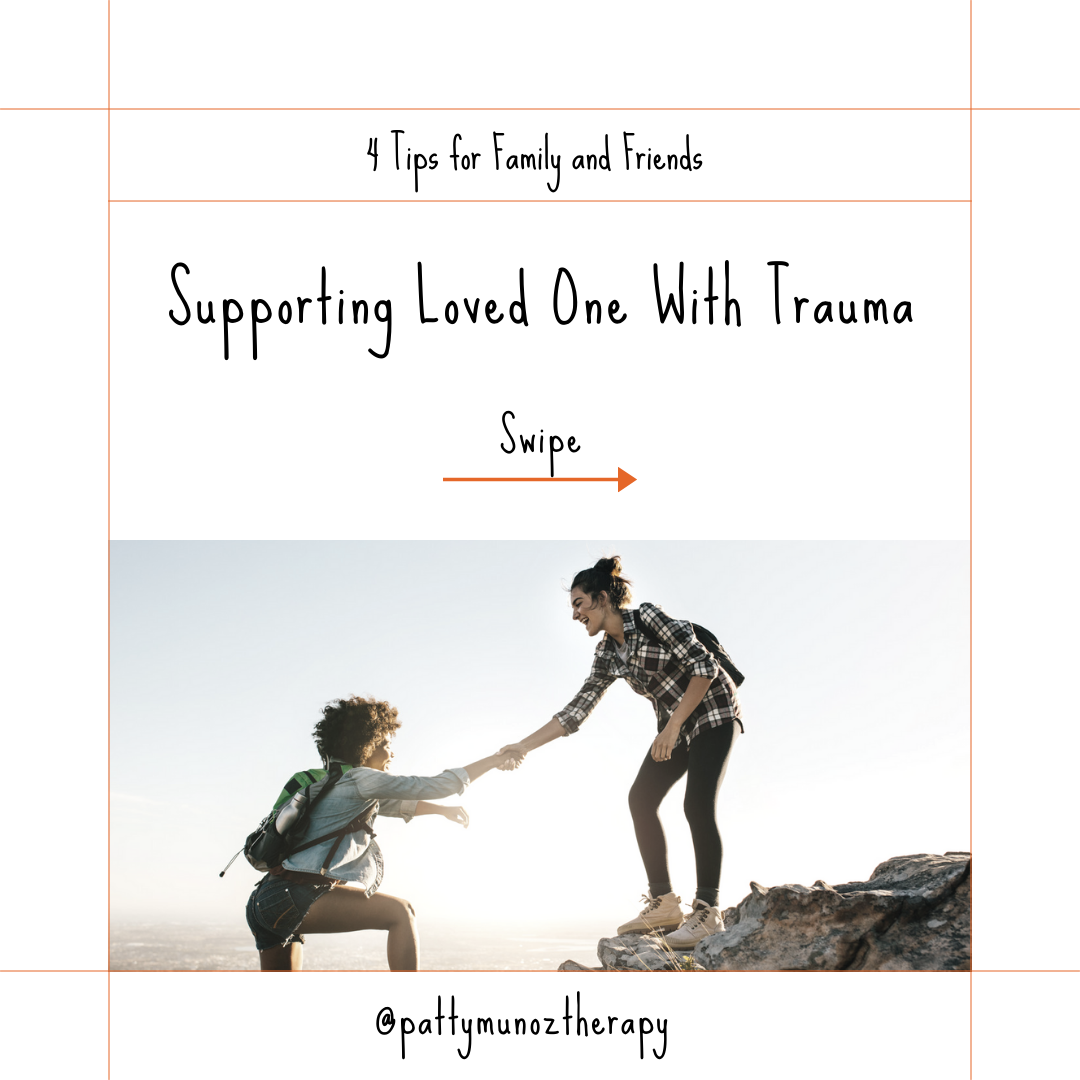Supporting Loved One with Trauma
In this blog, we talk about four ways that family and friends can support a loved one with trauma. Trauma is very common; it is estimated that “70 % of the US population has experienced some type of traumatic event” according to National Counsel of Mental Well-being. It is likely that you will have a loved (family or friend) who is experiencing trauma. It is believed that Latinos are at higher risk for PTSD (Post Traumatic Stress Disorder) due to stressful life events, lack of psycho education on mental health, socio-economic barriers to treatment (National Library of Medicine). Despite these statistics we can all do our part in support those that are closest to us and help them heal from trauma.
Here's 4 tips on how to support these family members or friends that may be struggling with Trauma.
1. Try to be an active listener. Active listening means you are giving your loved one. Undivided attention if they want to talk. It is also normal if they do not want to talk.
2. You could encourage your loved on to engage in healthy distractions such as hobbies or relaxing activities. You can even offer to participate in these activities.
3. It is important to be patient if this loved one needs space or appears to be different. Healing is different for everybody, and the pace of healing is different for each person.
4. Encourage your loved one to seek professional help if it's impacting their life and their daily functioning. For example, if it's impacting their work, their personal relationships, their health, or socially, it might be time to seek professional help.
We are here to help you and your loved one. Therapy can help in overcoming trauma and healing. If you need support, please contact us for your free 15-minute phone consultation 909-206-4613. We specialize in treating Anxiety and PTSD. We offer both in- person and online appointments in California. We are trained in EMDR, Brainspotting and DBT modalities.


